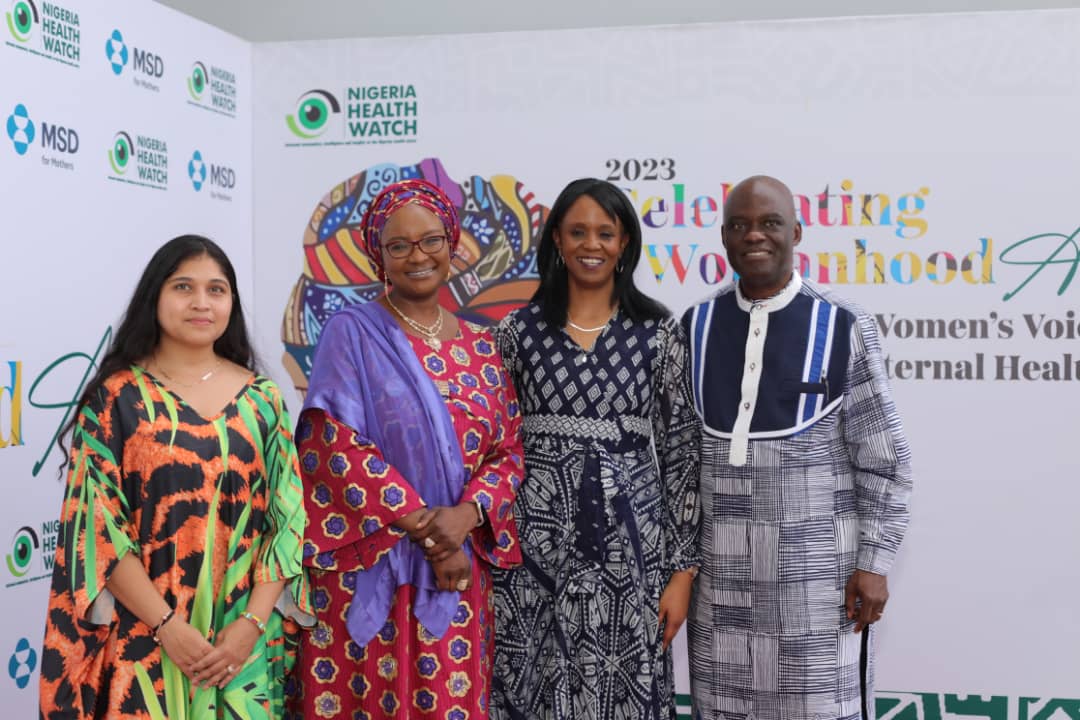‘Women’s voices key to improved maternal health’
Some stakeholders in the health sector have said that the prioritisation and inclusion of women’s voices is critical to addressing maternal health challenges in Nigeria. They stated this yesterday during the celebration of the Womanhood Art Gala organised by the Nigeria Health Watch in Abuja with the theme: “Elevating Women’s Voices for Quality Maternal Healthcare”. […]

Some stakeholders in the health sector have said that the prioritisation and inclusion of women’s voices is critical to addressing maternal health challenges in Nigeria.
They stated this yesterday during the celebration of the Womanhood Art Gala organised by the Nigeria Health Watch in Abuja with the theme: “Elevating Women’s Voices for Quality Maternal Healthcare”.
The Managing Director of Nigeria Health Watch, Vivianne Ihekweazu, said women’s voices were important because ultimately a woman knew her needs and the experiences she had had.
She noted that women’s perspectives and experiences before, during and after child birth provided critical insights on how to strengthen maternity care and design systems that worked for all women.
She said, “The experiences she has are close to her. Anything about maternal care is a journey. It is a nine-month journey the woman goes through. Throughout those nine months, there are many issues the woman may face. And at every step of her journey when she accesses healthcare in the home or community, listening to her voice and her needs can be very important because that is the only way to address them.”
While noting that art was used to elevate women’s voice for maternal health because it can be used to express different issues, she said, “Traditionally, when we talk about maternal health or healthcare, we sit in conferences and meetings, but with art, it is a physical expression. So, to a woman it means many things, and there are many things we can experience from that single piece.
Ihekweazu further said Nigeria was not yet in the right direction from its poor maternal indices, adding that, “According to SDGs’ target for 2030, we shouldn’t have no more than 70 women dying from childbirth. But currently, according to NDHS, it is 512.”
The wife of Kebbi State Governor and founder of Medicaid Cancer Foundation (MCF), Dr Zainab Shinkafi-Bagudu, said interventions from government, partners and Civil Society Organisations (CSOs) had helped to improve maternal health indices in Kebbi State.
She said that Kebbi harnessed community development committees to influence decisions and social behaviour, noting that this had made a huge difference in the maternal indices in the state.
Iyadunni Olubode, Nigeria’s Director of MSD for Mothers, said formal channels to integrate women’s perspectives and preferences would fortify and sustain efforts to improve quality throughout the continuum of maternity care.
She said, “To every woman receiving care, your opinion counts. What you have to say matters; you must use your voice.”
Senior Programme and Advocacy Manager, Nigeria Health Watch, Onyedikachi Ewe, who noted that Nigeria Health Watch held the maiden Womanhood Art Gala in 2021, said, it was a HealthMeetsArt initiative where critical issues affecting women’s health were visualised through various art forms.
Highlights of the event was the exhibition of art works depicting maternal health challenges in the country.
